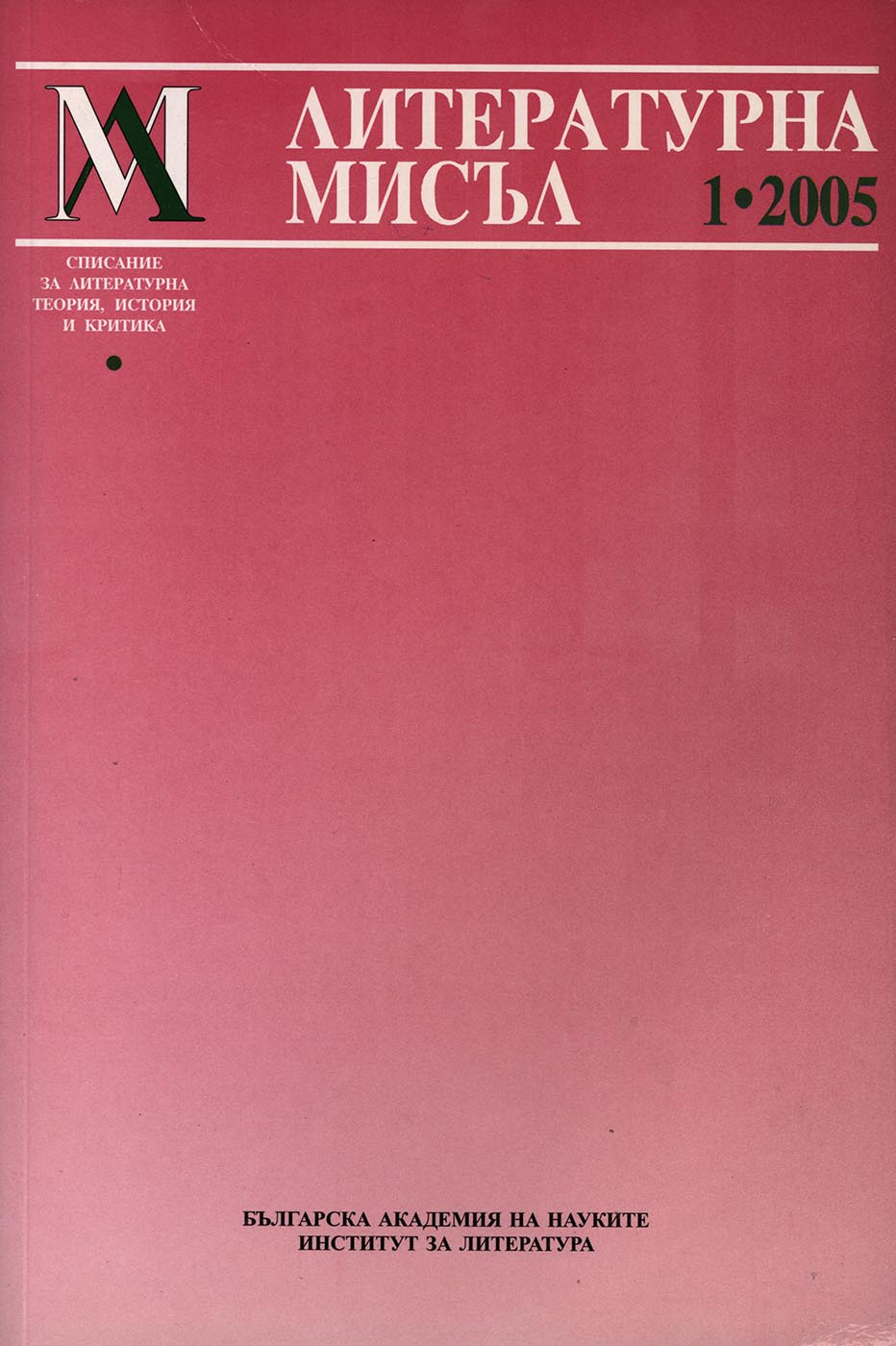Що е оксидентализъм и има ли той почва у нас? Предварителни тезиси в търсене на литературните аспекти на проблема
What is Occidentalism and does it have ground in our country? Preliminary theses in search of the literary aspects of the issue
Author(s): Nikolay AretovSubject(s): Literary Texts
Published by: Институт за литература - БАН
Summary/Abstract: The idea of the Other is a crucial part of the own identity. People imagine the Other in different ways, very often he/she is presented as a dangerous Enemy. Mythical thinking, which is alive even nowadays uses different tools to name and imagine the Other and to master it. Edward Said’s well-known book introduced the term Orientalism in the international humanities, and with it he designated „a way of coming to terms with the Orient that it based on the Orient’s place in European Western experience“, one specific „style of thought based upon an ontological and epistemological distinction made between „the Orient“ and (most the time) „the Occident“. The work ends with a warring. Above all, I hope to have shown my reader that the answer to Orientalism is not Occidentalism. No former „Oriental“ will be conformed by the thought that having been an Oriental himself he is likely — too likely — to study new „Orientals“ — or „Occidentals“ — on his own making. If the knowledge of Orientalism has any meaning, it is in being a reminder of the seductive degradation of knowledge, of any knowledge, anywhere, at any time. Now perhaps more than before. Said knew that this was not just a potential threat. Occidentalism not only exists; its effects are extremely pernicious. The most demonic of them befell on September 11, 2001. Ancient mental constructs and psychological trends, realized in different texts — secular and religious, literary, philosophical, journalistic and so on — lay beneath the terrorist acts. It appeared that not only the West is biased against the „Orient“ and tries to dominate through literary and scholar texts, but the „Orient“ reacts in a similar way and tries to deal with the problems of its relations with the West by building (analogical?) mental and linguistic constructions. In some cases Occidentalism may become a positive strategy, as in Hassan Hanafi’s Introduction to the Science of Occidentalism (1992). The phenomenon of Occidentalism finds its annalists among the politicians, journalists and scholars. Ian Buruma and Avishai Margalit are the most famous among them. Their book Occidentalism: the West in the Eyes of Its Enemies provoked serious debates and became a bestseller. Although the two terms (becoming titles of popular books) were constructed in obviously the same manner, the two phenomena are not entirely analogical, and Buruma and Margalit do not refer to Said. It is disputable whether Orientalism is the earlier one (according to Buruma, Islamism on which he focused is a modern phenomenon with western roots); but for a long period of time Orientalism was more powerful and was backed by and realized in the Western colonialist institutions and the Western academic studies of the „East“, that were more elaborated than the Eastern studies of the „West“. On the other hand, Occidentalism is to some extend a reaction to the Orientalism and the related politics, military actions, colonial institutions and academia. Occidenta
Journal: Литературна мисъл
- Issue Year: 2005
- Issue No: 1
- Page Range: 123-130
- Page Count: 8
- Language: Bulgarian
- Content File-PDF

